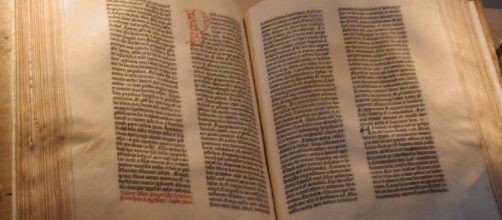The Museum of The Bible opened in Washington DC this month with a gala celebration that was well attended by both scholars and celebrities. However, not everybody is happy with the museum. Before it even opened, there were controversies swirling around about the leadership of the museum, the people who funded it, and the legitimacy of its collections.
This wasn’t lost on Twitter users. While many people were happy with the opening and welcomed the museum to the family of museums that fill the landscape of Washington DC, there were others who were just as unhappy with its opening.
Their anger seems to be directed at three major issues.
The Museum of The Bible and its connection to Hobby Lobby
Steve Green is the Chairman of The Board of the museum, and he is also the President of Hobby Lobby. Hobby Lobby is the world’s largest privately owned arts and crafts store. The company made headlines a few years ago when it fought against provisions in Obamacare that forced companies to pay for insurance that would allow women to get abortions. Green is a Christian and his faith is reflected in some of the policies of the company. For instance, the company is closed on all major holidays and every Sunday.
Bible museum-fine.
— Norberta (@Norberta36) November 26, 2017
Financed by owners of Hobby Lobby that got sued for bringing in priceless artifacts ILLEGALLY.
Any Congressional statement, especially calling it ‘Nonsectarian’ is clear violation of separation of Church and State.#GOPEvanSharia https://t.co/9FwRjD3RJF
There might be forgeries in the exhibits
According to National Geographic, the Museum of the Bible spent millions of dollars on the acquisition of some of the artifacts.
Specifically, experts are calling pieces of the dead sea scrolls into question. The Dead Sea Scrolls don’t look much like scrolls today. Most of them are in fragments and many of the fragments are no larger than a coin. Since 1970, it has been illegal to sell or purchase the fragments unless it’s between museums.
However, fragments discovered before 1970 can still be legally sold.
The Green family bought 13 of those small pieces over the years. The fragments hold no historical value and were allowed to be sold to the Green family. However, there is a thriving market for forgeries of the scrolls.
National Geographic also reported that University of Agder researcher Årstein Justnes said, “I think that over 90 percent of the post-2002 fragments most probably are modern forgeries.” He runs a group, the Lying Pen of Scribes, that looked extensively into the newer fragments of the scrolls.
Fragments of the Dead Sea Scrolls may be forgeries, and scholars are racing to find out. https://t.co/HOGzNIMJN3
— Nat Geo Channel (@NatGeoChannel) November 30, 2017
Corrupted by right-wing money?
Conservative Hobby Lobby family, big backers of new DC Museum of the Bible, have backed @realDonaldTrump, write @BillMoyers & @MichaelWinship https://t.co/nEG5Cq915s
— BillMoyers.com (@BillMoyers) November 29, 2017
The museum cost $500 million dollars to construct, equip, and open. A lot of the money was raised from religious organizations, churches, and conservative groups.
Many people believe this puts pressure on the museum to produce exhibits that aren’t historically accurate.


